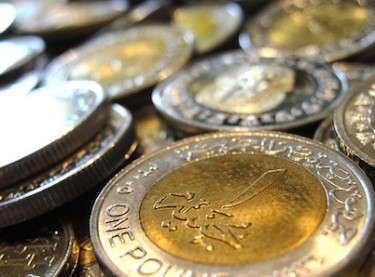This post is part of our special coverage Egypt Revolution 2011.
Helping Egypt overcome the cash crunch that ensued in the wake of the January 25 Revolution, the International Monetary Fund (IMF) agreed on Sunday to a 3 billion dollar loan package to the Arab World’s most populous country.
The deal will, supposedly, help Egypt obtain funding to meet the balance of payments deficit that now stands between $10bn and $12bn in the wake of the revolution that overthrew president Hosni Mubarak in February.
But while the Egyptian government and Finance Minister Samir Radwan hailed the deal as a step to “relaunch the Egyptian economy,” Egyptians were largely skeptical, with the deal receiving negative feedback from online citizens and activists.
On Facebook, a group entitled “No IMF Deal for Egypt” was created and now comprises around 300 members, to discuss the deal and provide other alternatives to save cash and reduce budget deficit.
User Noha El Shoky, for example, argues that:
reducing the salaries of ministerial consultants could save more than 70 bln [billion] dollars
Another user, Reda Eissa asserts that:
it’s possible to save 36 bln dollars immediately if the private funds were added to the general budget balance
On Twitter, blogger and activist Gigi Ibrahim (@Gsquare86) voiced a strong refusal to the deal:
@Gsquare86: WE MUST REJECT THAT LOAN!!!! we are in a revolution, NO #SCAF NO GOV can make these decisions without the people's consent !!! #IMF #Egypt
User Amr El Gohary (@amr_gohary) is questioning the validity of approving the deal by “a transitional government”
@amr_gohary: How come an interim unelected government is taking such strategic decisions as the IMF loan decision? #Egypt
The deal comes after IMF praised Egypt’s draft of the 2011/2012 budget balance which raised government spending by a quarter. The country's interim government claims the budget will help improve social justice and remedy some of the economic grievances that was, according to a Gallup poll released on Sunday, one of the main reasons that helped trigger the anti-regime uprising in January.
The balance centers around raising the national minimum wage from the old level of 34 Egyptian pounds (GBP 3.50) per month to 700 Egyptian pounds, and the establishment of a 2 billion Egyptian pound fund to pay for unemployment benefits. The IMF said the deal will help put the Egyptian Economy on the “right track”, despite opposition from businessmen who see the draft as running against the neo-liberal policies that helped their businesses flourish under Mubarak’s rule.
One thing for certain is that both Egyptians and their government are keeping their eye on how the economic wheel is moving these days. But while Egypt’s rulers attempt to “resurrect” this ailing sector, there is a fear lurking in the air that this might come at the expense of post-revolution Egyptian independence.
This post is part of our special coverage Egypt Revolution 2011.







